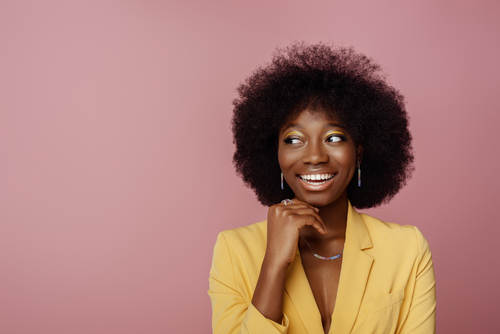It’s telling that our former first lady didn’t wear her hair in braids, a typical African-American hairstyle, until AFTER she was out of the White House. It can be presumed Michelle Obama didn’t think the general public would react positively if she wore her hair in this hairstyle. Aside from Michelle Obama, there are countless African-American women in the workplace who spend hours every week straightening their hair to reflect the texture of white women’s hair. Because we’ve been a white-centric society for decades, white- or smooth-textured hair is viewed as attractive and desirable, while kinky, rough-textured hair is viewed as undesirable and unattractive.
‘Othering’ Black or Natural Hair Leads to Bias, Which Leads to Harassment
In the last decade, however, society has increasingly prioritized authenticity and supporting a multicultural and multiracial society. And consistent with that trend, African Americans increasingly wear their hair natural and/or in braids, which is an Afro-centric style, not a white-centric style. When people in the workplace comment on the Afro-centric hair texture or style, they’re commenting on a racial characteristic, which can lead to racial harassment and discrimination. As more black people wore their hair naturally or in braids, non-black people reacted to the change of seeing natural hair in the office. It was a new trend because so many black people had historically spent hours each week ironing and straightening their hair to make it more “white” or European.
A recent study from Duke University suggests that black women with natural hairstyles, such as curly afros, braids, or twists, are often perceived as less professional than black women with straightened hair, particularly in industries where norms dictate a more conservative appearance. Participants in the study were given profiles of job candidates and asked to rate them on professionalism, competence, and other factors. Black women with natural hairstyles received lower scores on professionalism and competence and weren’t recommended as frequently for interviews compared with other candidates. In another experiment, two groups of participants evaluated the exact same job candidate, who was a black woman. One group saw a photo of the candidate with natural hair, while the other group saw her with straight hair. The group who saw the candidate with straight hair rated her as more professional, defined as more polished, refined, and respectable, and they more strongly recommended her for an interview.
The Creating a Respectful and Open World for Natural Hair (CROWN) Act prohibits race-based hair discrimination because of hair texture or protected hairstyles, as well as discrimination based on natural hair style and texture, such as locs, cornrows, twists, braids, Bantu knots, fades, afros, and/or the right to keep hair in an uncut or untrimmed state.
CROWN Act legislation has already been enacted in California, Colorado, Connecticut, Delaware, Illinois, Louisiana, Maine, Massachusetts, Maryland, Nebraska, Nevada, New Jersey, New Mexico, New York, Oregon, Tennessee, Virginia, Washington, and the U.S. Virgin Islands. Effective January 1, 2023, Illinois’s CROWN Act is the most recent.
Bias Leads to Harassment and Discrimination
In recent research from Emtrain and the Center for Work Life Law at the University of California at San Francisco, the study found statistical evidence that bias causes harassment and a lack of inclusion and belonging.
The research focused on process metrics, e.g., what’s happening in the workplace that causes the outcome metrics—for example, whether women and people of color are forced to prove themselves over and over again in order to get promotions. Process metrics are critical for diagnosing exactly where in the workforce process bias creeps in.
The research shows that respect, authenticity and belonging, and confidence in career development opportunities are all impacted by workplace bias. Furthermore, sexual harassment is strongly linked to bias, belonging, and confidence in career development opportunities. Both Emtrain and Work Life Law data show strong connections between bias and outcomes, even though the two organizations took different approaches to examining workplace experiences.
Including the Crown Act in Annual Harassment Prevention Training
Bias causes exclusion and harassment, and exclusion and harassment cause more bias—a never-ending downward cycle. And unfortunately, many instances of bias aren’t even conscious—society’s norms of smooth and straight hair, for example. People may not be consciously discriminating against black people. People have developed unconscious and emotional opinions that black hair isn’t “professional” because beauty and professional standards have been very white-centric, so to reduce the bias (which causes harassment), our annual harassment prevention programs need to teach people to appreciate all types of hair and hair styles and not judge one hair texture as the standard for professionalism. If we can teach people to recognize and mitigate their own biases about hair, we will also reduce racial harassment and discrimination at the same time.
Janine Yancey is the CEO & Founder of Emtrain.

